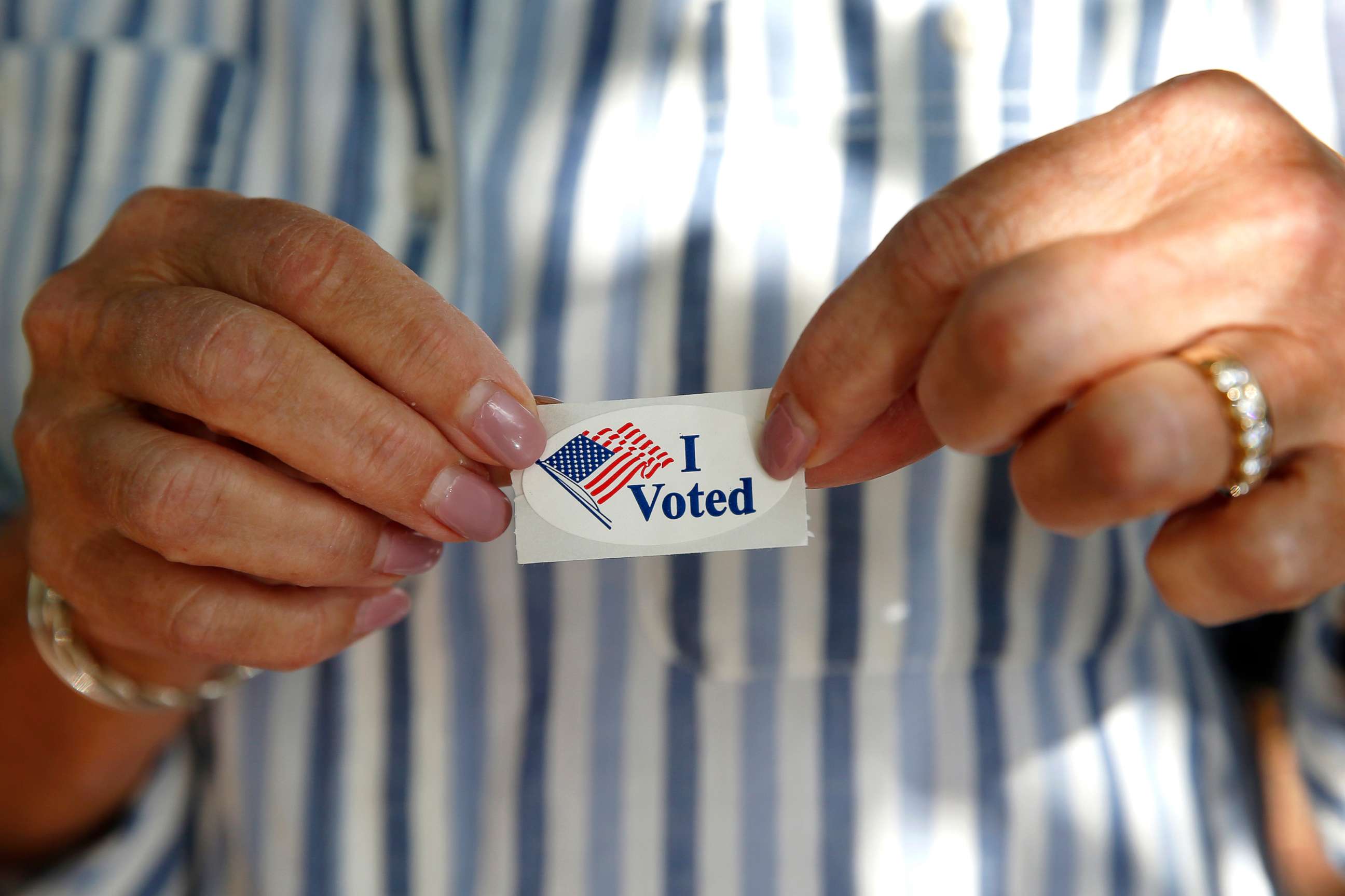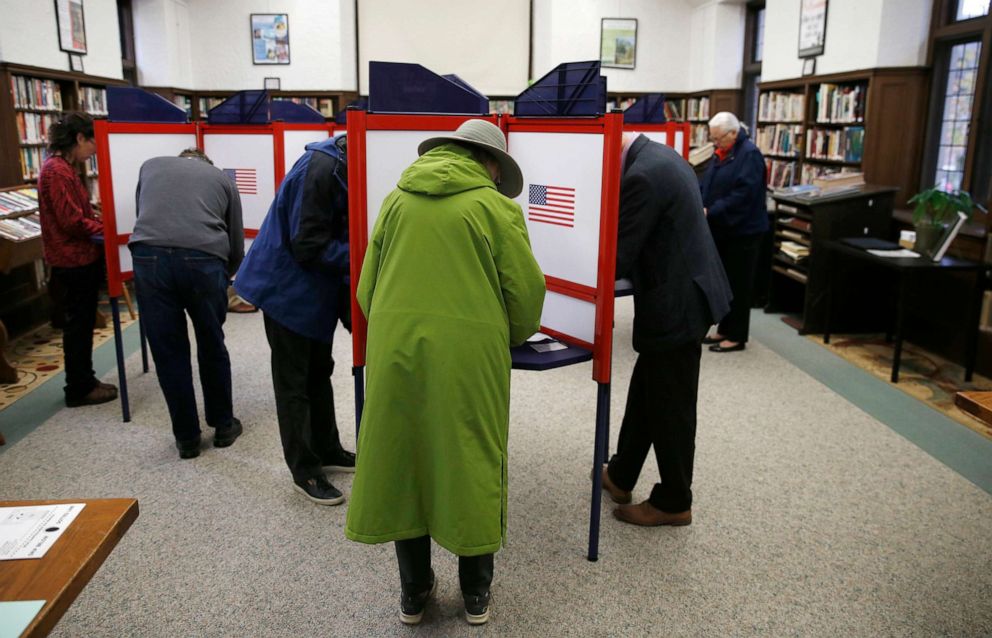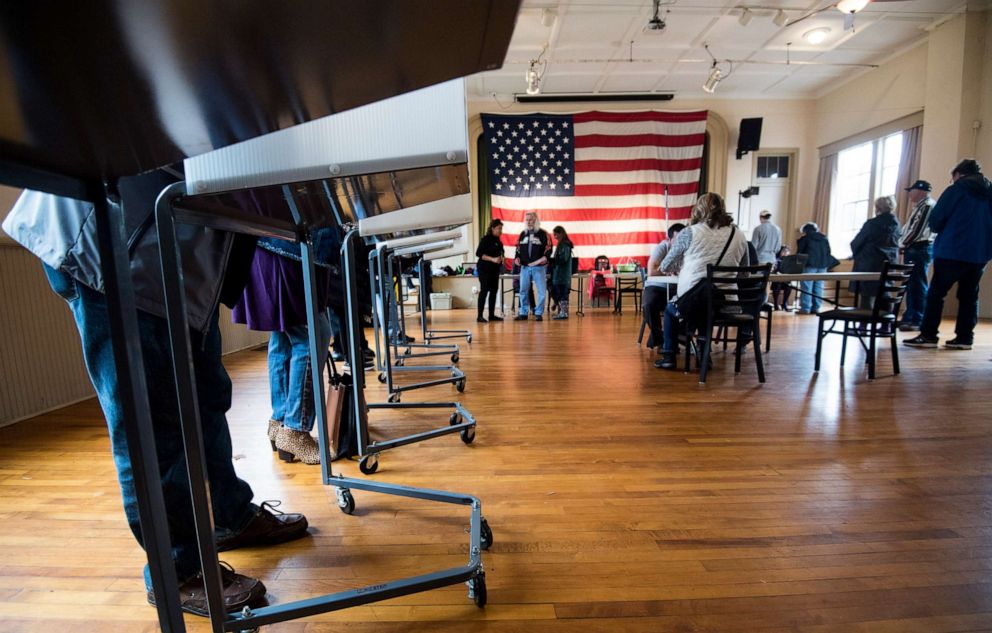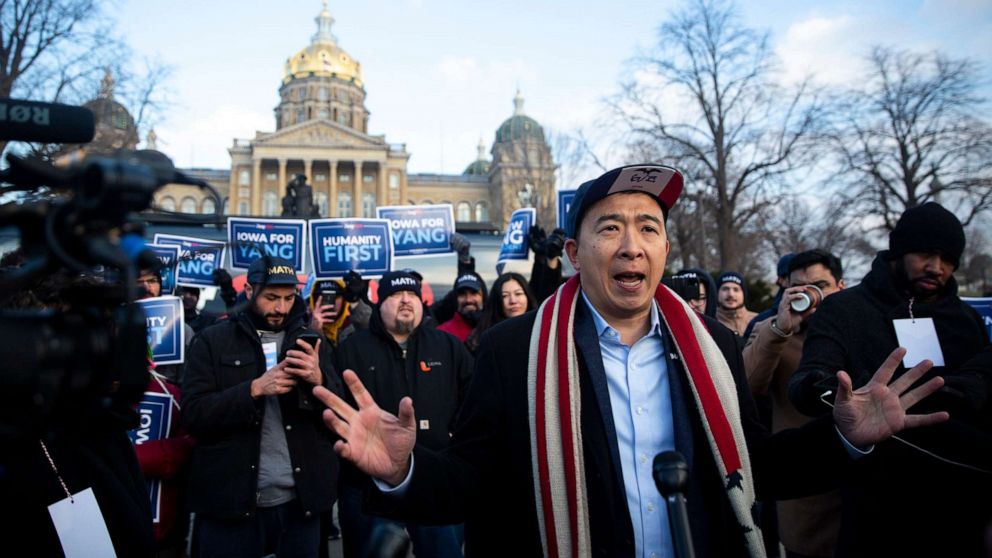Asian American and Pacific Islander voters may soon face potential shift in political power: Experts
When tech entrepreneur Andrew Yang became the last 2020 presidential contender to secure a spot on the December debate stage, his presence as the sole candidate of color to appear in an otherwise all-white lineup provided a visible example of the types of concerns his competitors have cited about the depleting diversity among the top-tier candidates.
"I’m very proud of being the first Asian American man to run for president as a Democrat, and I’m proud to be the lone person of color on the debate stage next week," Yang told reporters in Iowa on Tuesday after learning he made the cut.
Three days after Yang became the seventh candidate to join the December matchup, a labor dispute led to all of the contenders set to face off at next week's debate to say they "won't cross the union's picket line". Yang's campaign underscored their commitment to the union, telling ABC News that the entrepreneur will participate in the debate if the dispute gets settled or a new venue is chosen.
As Yang, the son of Taiwanese immigrants, prepares to debate six other candidates, his presence represents his own doggedness on the campaign trail.
It also, in some ways, symbolizes a potential shift in political power for Asian Americans and Pacific Islanders, the nation’s fastest growing – and often politically overlooked– ethnic group, political experts say.

A week before Yang met the DNC’s parameters for the debate stage, California Sen. Kamala Harris, who is of Indian and Jamaican heritage, had been the first candidate of color to meet the necessary qualifications. Harris suspended her presidential campaign before participating in the last debate of the primary season.
Hawaii Rep. Tulsi Gabbard, who is of Southeast Asian, Polynesian, and Caucasian descent, was on the cusp of qualifying for the December debate, but did not meet the polling criteria set by the DNC.
The heightened visibility of Asian American and Pacific Islander presidential candidates coincides with the potentially increased influence voters from the same demographic may have on the 2020 primaries, especially in California, where mail-in ballots are set to begin being counted on February 3, 2020 – the same day as the Iowa caucuses. With nearly ten times more delegates at stake in California than Iowa (495 to 49), voting patterns in the Golden State could determine who ends up cinching the Democratic nomination.
Across the U.S., Asian American and Pacific Islanders make up approximately six percent of the population, according to the U.S. Census. Data collected in 2018 shows the Hispanic population comprises about 18% of total population in the U.S.; Blacks make up about 13 percent of the total population, and the bulk of the total population, just over 75%, is White.
U.S. Census data also shows that Asian American and Pacific Islanders make up just over 15 percent of the population of California.
Professors Janelle Wong of the University of Maryland and Karthick Ramakrishnan of the University of California, Riverside, who focus on Asian American and Pacific Islander voters' political involvement say this voting block “could prove critical in shaping the overall winner and keeping certain candidates viable.”

According to Pew research, an estimated 11 million Asian Americans will be eligible to vote in 2020, which is more than double the amount of those who were able to vote at the beginning of the decade. Overall, Pew estimates that "Asians will account for five percent of next year's electorate."
“Andrew Yang has a big challenge ahead of him in California,” Ramakrishnan, said in an interview with ABC News.
“Just because he's Asian American, he can't take for granted that he'll have their support because he's not as well known,” Ramakrishnan, who directs National Asian American Survey and is the founder of AAPIData.com, added.
Despite generally favoring Democratic candidates, this particular group of voters historically has not been a targeted focus for political campaigns.
According to Wong, the lack of outreach is a result of a combination of factors including migration patterns that led to Asian Americans and Pacific Islanders heavily populating areas considered politically “safe” for Democrats.
“Outreach has always been something that parties and candidates do at the last minute when it involves Asian Americans, partly because Asian Americans tend to be concentrated outside of the swing states,” Wong said in an interview with ABC News.
Wong, who is a core faculty member in the Asian American Studies Program at the University of Maryland adds that California, Virginia, and Nevada will likely see a rise in campaign outreach in the coming months as 2020 campaigning kicks into full gear.

The possible political forecasting is coming after data of the 2018 midterm election cycle showed California's large Asian American and Pacific Islander populations having likely contributed to part of the "blue wave" in the southern part of the state.
Just last month, Virginia played a key role in Democrats' effort to expand their political influence ahead of 2020, when the party took control of the state's House and Senate for the first time in more than two decades.
Seema Agnani, the executive director of the National Coalition for Asian Pacific American Community Development, a group that works to focus on policy efforts involving housing issues, financial mobility and neighborhood preservation in lower income Asian American and Pacific Islander communities, said language barriers as well as the diversity within those communities also play a role in perpetuating a lack of political outreach from campaigns.
“There is long term engagement and work that needs to be done,” Agnani said in an interview with ABC News. “Because of the size of the population, oftentimes [officials] don't prioritize hiring somebody – a staff dedicated to working in that community.”
Agnani also added that for some lower-income and first time Asian American and Pacific Island voters, a lack of civic engagement could also be rooted in the political context of their countries of origin.
“If there is a strong democratic process back home, there's a higher likelihood of [these voters] engaging here in the U.S.,” Agnani said, adding, “If the countries they're coming from have a history of not having a strong civic engagement, that does definitely impact people's ability to vote here.”
But Wong notes that cultural stereotypes could also be at play.
“I think that parties and candidates often think about Asian Americans as being not interested in U.S. politics or not worth their time to mobilize, and I think that's really due to stereotype,” Wong said.
Over the course of the last year, Asian American stereotypes have been in the spotlight on the campaign trail as Yang poked fun at his heritage with jokes about “knowing a lot of doctors” as well as his campaign’s “Make America Think Harder” slogan resulting in an acronym that spells out “MATH”.
In an October interview with the Washington Post, Yang said he doesn’t believe his comments correlate into Americans automatically buying into stereotypes.
“I think people can tell the spirit of when I use that kind of humor, and I think that Americans are very, very smart,” Yang said at the time.
“I think that by bringing these stereotypes into the light and poking fun at them you’re actually dispelling them and making them weaker,” he added.
But some experts don’t agree, citing the broad cultural and economic diversity of the Asian American and Pacific Islander community could be negatively impacted with the continuation of these kinds of comments.
“As somebody who is working on supporting the low income parts of our community, it is extremely frustrating for me, because that is our number one barrier to progress -- this perception that all [ Asian American and Pacific Islanders] are doing well,” Agnani said, adding, “I do think that, you know, it probably is having an impact on him, garnering support from that part of the community.”
Others believe those comments are not as big of an issue as his lack of name recognition paired with being solely associated with his signature campaign promise of a Universal Basic Income. "Universal basic income is an income support mechanism typically intended to reach all (or a very large portion of the population) with no (or minimal) conditions," according to a scholarly article on the International Monetary Fund's website.
“You have a lot of Asian Americans who are excited to see an Asian American candidate who's doing as well as he's doing,” Ramakrishnan said, “I think his ability to gain more support in the Asian American community will depend both on increasing his name recognition, but also going into more detail in terms of where he stands on issues like immigration education, [and] health care.”
In terms of immigration policy, Yang believes in creating a pathway to citizenship for undocumented immigrants and has proposed putting them on an 18-year path to citizenship by creating a new tier of permanent residency. This policy would allow undocumented immigrants to work in the country, while also allowing them to safely “come out of the shadows.”
Yang has also said he is sympathetic to the struggles of so-called “dreamers”, young undocumented immigrants who were brought to country at a young age. As a supporter of the DREAM Act, Yang is in favor of a quicker pathway to citizenship for those who fall into the Dreamer category.
Additionally, Yang has released a plan to strengthen border security by investing in technologies to monitor areas that are under less surveillance on the southern border.
For his part, Yang maintains that he doesn’t “feel any undue pressure” as the only candidate of color on the debate stage.
“I think people will understand that I'm speaking from my own perspective, which is just the perspective of one candidate, and that I can't speak for every community of color,” Yang said while on the campaign trail in Iowa on Tuesday. “In a way, acknowledging that might be like one of the bigger responsibilities I might have.”
ABC News' Armando Garcia contributed to this report.




